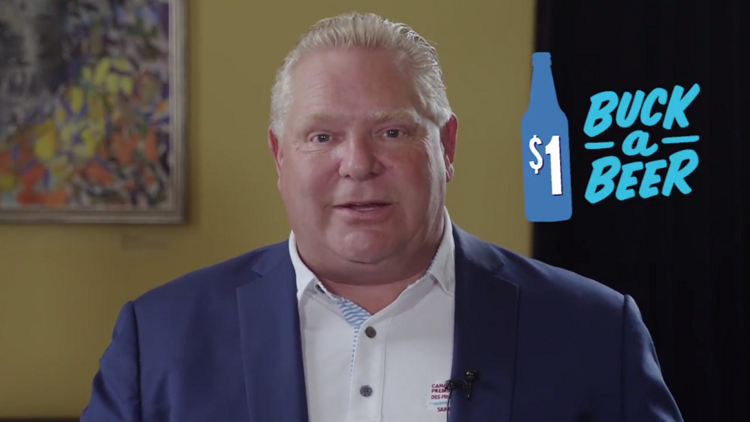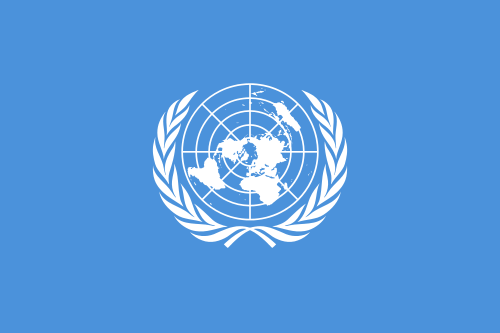TimeGhost History
Published on 31 Aug 2018This is it! The moment we’ve been working up to all year is here – time for Indy and Spartacus to tell what has gone on and what will happen!
Join us on Patreon: https://www.patreon.com/TimeGhostHistory
Executive Producers: Bodo Rittenauer, Astrid Deinhard, Indy Neidell, Spartacus Olsson
A TimeGhost public announcement produced by OnLion Entertainment GmbH
August 31, 2018
World War 2 in Real Time w. Indy Neidell Starts Tomorrow 1 Sep 2018
Experimental strip farm demonstrates why strip farming was eventually abandoned
Tim Worstall uses an article in the Guardian about a National Trust experimental replication of medieval farming patterns to point out exactly why modern farms do not use them:

Plan of a fictional medieval manor. The mustard-coloured areas are part of the demesne (owned by the lord), the hatched areas part of the glebe (reserved to support the parish priest).
Illustration from William R. Shepherd’s Historical Atlas, 1923 via Wikimedia Commons.
The proof of the inefficiency is in the presence of that lots more wildlife. We’re trying to grow food for humans to eat recall. So, more wildlife eating off the same earth is less food for humans. We have more butterflies around? That’s nice, but that does mean more caterpillars munching on those now not for humans crops. Hen harriers? Great, but they’re eating the mice and the voles living off those crops. Land that’s growing wildflowers isn’t growing grain or veggies for us, is it?
Sure, it’s nice to have hen harriers, great to have wildflowers. But their very existence on this land shows that this method of farming is less efficient at doing the job of farming – growing food for us. Which is why we abandoned this method of farming of course. Under the simple and basic pressures of trying to gain more output from our inputs. And yes, land is, obviously enough, an input into farming.
And if we’d like to have flowers and harriers? Then we should be using the most efficient farming methods on those areas we do farm so as to leave more space, more land, for the pretty things we’d also like to have. That is, prairies of glycophosphate drenched wheat for us, the other 30 or 50 or 70% of the land left alone for them. And the more chemicals we use on our bit the smaller that bit devoted to us is going to be.
The very fact that we’ve more wildlife as a result of this inefficient farming method shows us that we must be using the more efficient industrial methods. You know, to save the wildlife?
The American First Army Gears Up – Germany Retreats I THE GREAT WAR – Week 214
The Great War
Published on 30 Aug 2018As the German Army withdraws along the Western Front, the Entente prepares for ever more offensives. This includes the newly founded American First Army which will have the task to attack the Germans in the Meuse-Argonnes area.
Farewell, buck-a-beer publicity stunt, we hardly knew ye
Chris Selley on the all-too-brief publicity stunt of cheaper beer for Ontario:
President’s Choice is ending its buck-a-beer promotion on Sept. 3, just days after it started: We get one week, one long weekend and then out of the pool, party’s over, back to class. PC-branded beer will rocket back up to $1.38 a bottle when you buy 24 at The Beer Store or $1.65 when you buy 12, which highlights just how steep — and presumably unsustainable — the discount really was. We shall see how long the two other participating breweries’ offers last, but they made it quite clear, as did PC, that this was a limited-time offer prompted by Doug Ford’s most shamelessly blunt populist pledge.
My goodness, though, what a commotion it will leave in its wake. Some brewers quite understandably took the opportunity to note the impact of aluminum tariffs on their bottom lines, to complain that Ford’s government was playing favourites by giving away expensive product placement in LCBO stores for $1 beer, and to note the government is actually raising taxes on beer.
Others, however, waxed utterly scandalized. “How about buck a pound of steak? Who would eat that?” asked one Toronto brewer who had perhaps not entirely thought through his rhetorical question. “We haven’t even given two thoughts about this,” Great Lakes Brewery’s communications manager, Troy Burtch, told the Toronto Star. “Why would anyone do this?” Burtch and Great Lakes have signalled their total uninterest by tweeting incessantly about it.
The Canadian Taxpayers’ Federation went after some of the affronted craft brewers for accepting taxpayer subsidies for their higher-end products. People on social media lined up for and against buck-a-beer, vowing to boycott the participants or those complaining about the program.
The whole thing was a dumb Ford Nation stunt, no question. But good grief. You can hardly blame the breweries, either for participating or for not: they were just trying to wring as much publicity as they could from the situation. No one is really any worse off, or at least not much. What we were really seeing among the chattering classes was a rerun-by-proxy of the June 6 election: to drink Ford’s swill was to vote Ford Nation; to boycott it was to stand bravely against their entire agenda.
How did Britain Conquer India? | Animated History
The Armchair Historian
Published on 10 Aug 2018Check out History With Hilbert: https://www.youtube.com/watch?v=Hs1sw…
Our Patreon: https://www.patreon.com/armchairhistory
Our Twitter: https://twitter.com/ArmchairHist
Sources:
https://dailyhistory.org/Why_was_Brit…
1857 Indian War of Independence: 1857 Indian Sepoys’ Mutiny, Shahid Hussain Raja
The East India Company, Brian Gardner
The Corporation that Changed the World: How the East India Company Shaped the Modern Multinational, Nick Robins
A History of India, Peter Robb
QotD: Victim mentality
Does feeling like a victim make one behave more or less selfishly? Imagine that an individual feels wronged by an everyday event: An executive sees a colleague receive a promotion that she feels she deserved instead; an academic finds out that he is once more assigned to a tedious committee, whereas his colleagues seem miraculously spared; an author is about to send off a manuscript when a computer glitch erases weeks’ worth of work, and she is penalized for missing her deadline.
As these individuals contemplate their unfortunate lot, how motivated would they be to help others? One could imagine that individuals who have received the short end of the stick would be especially motivated to help others, to redress other wrongs, or to make themselves feel better with the warm glow that comes from doing good. In this article, we make the opposite prediction: We propose instead that feeling wronged gives people a sense of entitlement to obtain positive outcomes — and to avoid negative ones — that frees them from the usual requirements of social life. Whereas individuals typically contend with a strong norm of benevolence that encourages helping and curbs egoism, we propose that wronged individuals, because of their heightened sense of entitlement, feel relieved from this communal obligation and therefore exhibit more selfish intentions and behavior.
[…]
Our research has shown that people who have just been wronged or reminded of a time when they were wronged feel entitled to positive outcomes, leading them to behave selfishly. They no longer feel obligated to suffer for others and therefore pass up opportunities to be helpful. By contributing to our general understanding of the determinants of selfishness, this research points toward one possible impediment to people’s engagement in charitable behavior. Future research in this vein thus has the potential to identify novel methods to encourage altruism in people who feel wronged, thereby stemming the cycle of suffering-to-selfishness suggested by our research.
Emily M. Zitek, et. al., “Victim Entitlement to Behave Selfishly”, Journal of Personality and Social Psychology, 2010-02.
August 30, 2018
“This is simply drivel. And it’s the standard Green Party phantasm written out again”
Tim Worstall is not impressed with a new study out of Finland which recommends that the United Nations become much more involved in organizing and directing the lives of everyone on the planet … for our own good, of course:
We’ve another of those pieces of environmental drivel on offer to us. Here it’s the considered opinions of some Finnish knownothings on what is necessary to achieve the UN’s Sustainable Development Goals. The basis of which is that we should all prepare to be rather poorer. No, not because the Earth is running out of stuff to make us richer but because our Finnish knownothings are recommending that the UN take charge of things and forcibly make us poorer.
This is perhaps not the correct manner of running the global economy.
[…]
That’s all entirely drivel, of course. Capitalism doesn’t depend upon cheap fossil fuels nor even cheap energy. It’s just an economic system in which we have private property. Including the value added belonging to the people who own the property which adds the value. That’s really all it is too. Profit belongs to the people providing the capital – this is definitional by the way. For that’s what we define profit as, that part of the returns from an activity which go to those who provide the capital.
There is absolutely nothing at all which requires that energy, or any natural resource, be of any particular price nor level of price. All we are saying when we recommend capitalism is that the system seems to work better when those who make a profit get to keep it. Our economic definition of profit being when value of output is greater than the costs of inputs. Who gets those profits is definitional about capitalism. Any and every economic system is trying to produce profits. Because any and every economic system is trying to add value to inputs, trying to create value.
[…]
There’s a remarkable lack of reasoning as to why international trade needs to be limited or regulated. If we’re facing more expensive energy then we should be doing more of it, not less. But then perhaps those doing bio- and physics don’t know that Adam Smith pointed out we’d do better getting the wine from Bourdeaux rather than growing the grapes in Scotland. Or even that David Ricardo launched an entire subset of economics with his observation that trade uses fewer resources than non-trade. I mean, it is possible that they’re just ignorant of the most basic points here, isn’t it?
They’ve also not grasped that good life and economic growth part at all. No one actually producing economic growth – defined, as always, as an increase in the value being produced – does so in order to produce economic growth. They do it in pursuit of their definition of the good life. Economic growth is simply the aggregate of all those people trying to make their own lives better, their pursuit of that good life. The inverse is also true. If we leave people alone to pursue their own versions of the good life then economic growth is what we get. Our bio-p types seem unaware of the laissez faire argument. That we all get richer faster if left alone to our own visions of life?
Now, if this was just a few blokes in the Far North muttering to themselves among the trees of future toilet roll this wouldn’t matter. But this is serious advice to the United Nations? It’s about to become art of how world governance works? Dear God Above, what have any of us one to deserve this?
Try this for example:
A key problem with carbon pricing has been that states, federations, or unions have not implemented it on a sufficiently high level, fearing industrial leakage to less environmentally-regulated countries. For this reason, many economists and politicians hope for global carbon pricing. But if we return to the four examples above, energy, transport, food, and housing, we can see that it would be highly unlikely that even global carbon pricing would guide economic activity in the right direction – at least with sufficient speed and breadth. As a policy tool, carbon pricing lacks the crucial element of coordinating a diverse set of economic actors toward a common goal. Individual actors would have an incentive to decrease carbon emissions, but they would still compete through their own business logics; there would be nothing to ensure that any one business logic would support the transition to sustainability on a systemic level.
Everyone on the planet economises on their carbon emissions because emissions are now more expensive. This does not work to coordinate everyones’ actions about carbon emissions? These people never have considered the role of the price system in coordinating human activities, have they? Not heard a single beanie about Hayek, the Pretence of Knowledge and all that?
An Introduction to Perspective Drawing | Paul Sellers
Paul Sellers
Published on 29 Aug 2018300,000 is a big number! Thank you all for subscribing. Paul wanted to do this video for a while but since we ended up filming this right around the time we passed this milestone we are thinking about making the original drawing the giveaway. Would you like the drawing to hang on your shop wall? Oh, and if you haven’t already, please subscribe!
How do you get a project idea down on paper? Drawing is a great way of communicating your design to those around you. Paul has always sketched and drawn his own designs and in this video shows you how to create your own perspective drawings.
For more information on these topics, see https://paulsellers.com or https://woodworkingmasterclasses.com
Britain “forgets” to regulate e-cigarettes, youth smoking drops substantially
Last month, Matt Ridley sang the praises of the regulators who didn’t regulate:
Britain is the world leader in vaping. More people use ecigarettes in the UK than in any other European country. It’s more officially encouraged than in the United States and more socially acceptable than in Australia, where it’s still banned. There is a thriving sector here of vape manufacturers, retailers, exporters, even researchers; there are 1,700 independent vape shops on Britain’s streets. It’s an entrepreneurial phenomenon and a billion-pound industry.
The British vaping revolution dismays some people, who see it as a return to social acceptability for something that looks like smoking with unknown risks. Yet here, more than anywhere in the world, the government disagrees. Public Health England says that vaping is 95% safer than smoking and the vast majority of people who vape are smokers who are partly or wholly quitting cigarettes. The Royal College of Physicians agrees: “The public can be reassured that ecigarettes are much safer than smoking.”
Lots of doctors are now recommending vaping as a way of quitting smoking. It is because of vaping that Britain now has the second lowest percentage of people who smoke in the European Union. The youth smoking rate in the UK has fallen from 26% to 19% in only six years.
How did this happen here? It’s partly the fault of the advertising executive Rory Sutherland; he is the Walter Raleigh of this revolution. In 2010, he walked into an office in Admiralty Arch to see an old friend, David Halpern, head of David Cameron’s new “nudge unit”, formally known as the Behavioural Insights Team. Sutherland pulled out an electronic cigarette he had bought online, and inhaled. By then, several countries including Australia, Brazil and Saudi Arabia had already banned the sale of electronic cigarettes — usually at the behest of tobacco interests or public-health pressure groups. California had passed a bill banning them, though Arnold Schwarzenegger, then the governor, had vetoed it. It looked inevitable that Britain would follow suit.
“I was a very early convert,” Sutherland tells me now. “Partly because I was a longtime ex-smoker myself who found them much better than constant relapses; I was also interested in the placebo effect they offered by mimicking the act of smoking. But I was almost equally fascinated by the psychology of the people who instinctively wanted to ban them.”
Halpern took notice. He knew the theory of “harm reduction” — that it is more effective to give somebody the lesser of two evils than insist unrealistically on immediate abstinence. So he asked his nudge team to get digging. Over coffee at No 10, he was surprised to learn that even the anti-smoking group Ash was leaning in favour of ecigarettes. So when public-health nannies started calling for them to be banned, Halpern made sure the government resisted.
In his book Inside the Nudge Unit, Halpern wrote: “We looked hard at the evidence and made a call: we minuted the PM and urged that the UK should move against banning e-cigs. Indeed, we went further. We argued we should deliberately seek to make e-cigs widely available, and to use regulation not to ban them but to improve their quality and reliability.”
H/T to Rafe Champion for the link.
QotD: Beliefs
In religion and politics people’s beliefs and convictions are in almost every case gotten at second-hand, and without examination, from authorities who have not themselves examined the questions at issue but have taken them at second-hand from other non-examiners, whose opinions about them were not worth a brass farthing.
Mark Twain, Autobiography of Mark Twain, 1906.
August 29, 2018
The History of Virtual Reality – Cyberpunk, Anime, and the Movies – Extra Sci Fi – #2
Extra Credits
Published on 28 Aug 2018From William Gibson’s Burning Chrome which introduced the word “cyberpunk” into pop culture, to modern-day anime like Sword Art Online that explore if technology really isn’t in our control, our anticipation for VR has only accelerated in the last 30 years. Many thanks to Oculus Rift for sponsoring the next two episodes of Extra Sci Fi and giving us a chance to explore our collective definition of virtual reality.
The Conservative convention, bought and paid for by the friends of supply management
Colby Cosh relates the details of how well stage-managed the Conservative convention in Halifax was … from the point of view of the beneficiaries of supply management:
A copy of a “briefing binder” that the Dairy Farmers of Canada had given to representatives of supply-managed agriculture was carelessly discarded, found by a Calgary delegate named Matthew Bexte, and splattered onto the internet. The contents of the binder describe the strategy and outline the available forces of the supply-management squad. The resolutions being discussed by the convention included one favouring the repeal of expensive tariff protection for Canada’s egg, dairy, and poultry cartels, and the binder lists the particular responses and tactics to be used depending on how far the offending free-trade resolution advanced in the debate.
Which it didn’t. The motion in favour of letting Canadian suckers buy foreign cheese in dangerous unregulated quantities died noisily in a “breakout session,” never even reaching a vote, much less the plenary session of the convention. As the National Post’s uncannily versatile Marie-Danielle Smith documented before the briefing book was leaked, free-trade delegates had already caught the scent of a rat, complaining that the motion had been suppressed through strategic delay by operatives working for party leader Andrew Scheer.
The Dairy Farmers of Canada briefing describes this motion-suppression tactic as “Scenario 2,” calling it a “sub-optimal” outcome: “It buys us (supply-managed farmers) a reprieve, but doesn’t put the issue to rest.” According to the briefing notes, if the motion had passed in the Friday breakout session, that would plunge the world into “Scenario 3.” Under Scenario 3, a Friday evening reception at an Irish pub, with free food and potables, would come into play: quota-sucking farmers and their public-relations goons would have been given a chance to mingle with well-lubricated CPC delegates, with “infographics on a slideshow” pulsing subliminally in the background.
The hope here would be to prevent a devastating “Scenario 5,” in which the destruction of supply management came before the whole CPC assembly for a vote and won it. The prospective talking points accompanying Scenario 5 warn that “Members of the Conservative Party of Canada have sent a clear signal that they do not support Canadian farmers” and they hiss menacingly that “Canadians will remember the position taken by Conservatives today.”
Fortunately, even in the event of a flat-out Scenario 5, there would still be what the book calls the “Safety Net.” The safety net is that annual party conventions are meaningless, expensive balderdash anyway. Or, as the Dairy Farmers of Canada (DFC) book puts it: “The powers of the Leader are far-reaching in preventing a policy from being in the party platform. DFC has been told by the Leader’s office that he will exercise this power … regardless of the outcome at convention.”
Good old Andrew … he knows who put him in his current position and has signalled in advance that he’ll “stay bought”. Too bad for Canadian consumers, but great news for the leeches who benefit from the market distortions of supply management.
Out of Context: How to Make Bad History Worse | World War 2
Knowing Better
Published on 5 Mar 2018Churchill was a genocidal maniac. The Japanese were rounded up into concentration camps. FDR let Pearl Harbor happen. When you take history out of context, you can make it say whatever you want – including making bad things worse.
A long list of links to sources is included, but I’m too lazy to re-link ’em all, just go to YouTube to see them. Back in 2009, I did a short fisking of Pat Buchanan’s hit-piece on Churchill’s “reponsibility” for the outbreak of WW2.






